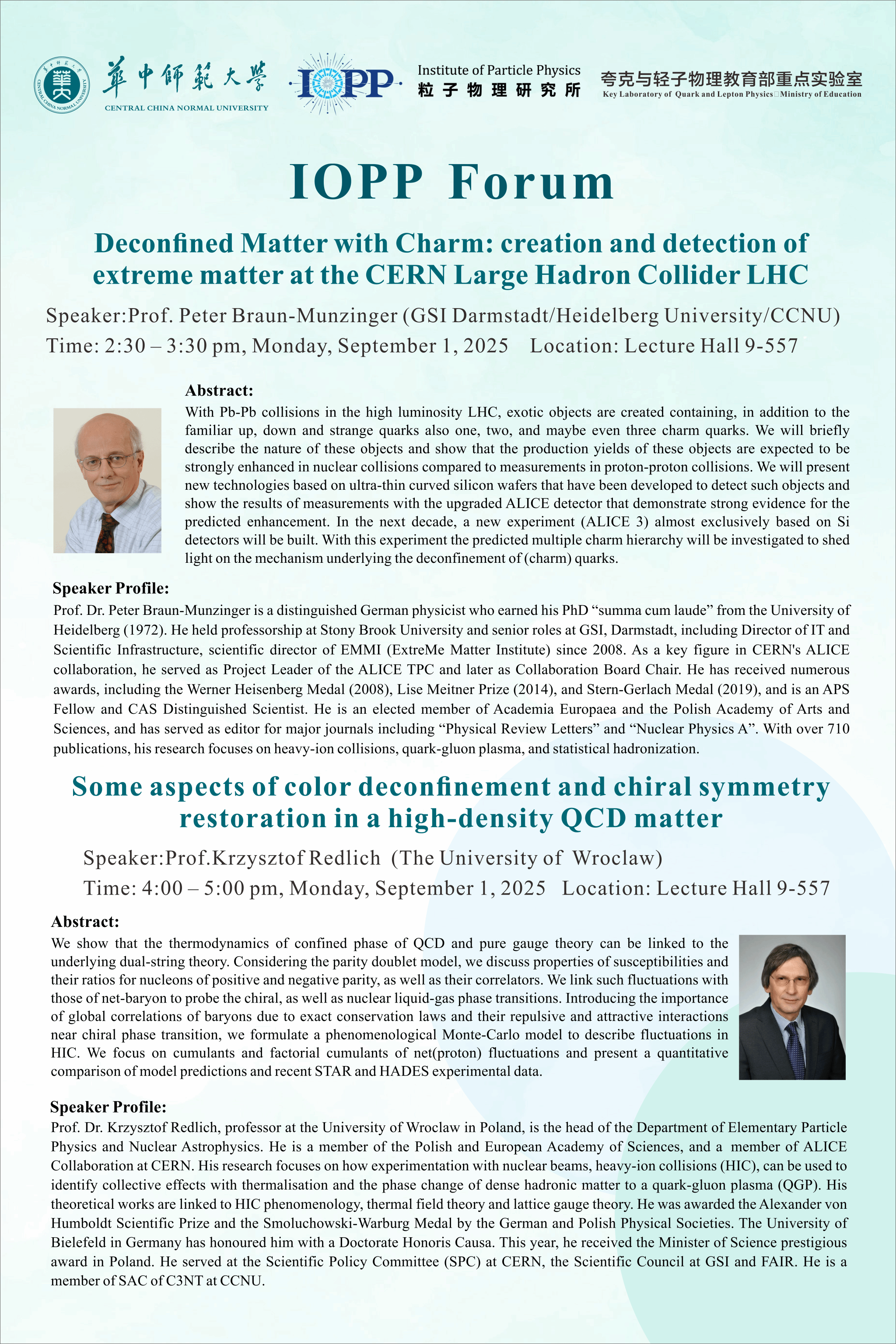Speaker: Prof Peter Braun-Munzinger(GSIDarmstadt/Heidelberg University/CCNU)
Time: 2:30-3:30pm,Monday,September 1.2025
Location: Lecture Hall 9-557
Abstract:
With Pb-Pb colisions in the high luminosity LHC.,exotic obiects are created containing, in addition to thetamiiar un, down and stranee auarks also one, two, and mavbe even three charm auarks. we wi brethdescribe the nature of these obiects and show that the production yields of these obiects are expected to bestrongly enhanced in nuclear collisions compared to measurements in proton-proton colisions, we wil presennew technologies based on ultra-thin curved silicon wafers that have been ceve oneo to cetect such ohiects andshow the results of measurements with the uperaded AlICE detector that demonstrate strong evidence for thepredicted enhancement,In the next decade, a newexnerimentAee3)amost excusiveyAaseo onsdetectors will be built. With this experiment the predicted multiple charm hierarchy will be inyestigated to shecight on the mechanism under ying the decontement of(charm) quarks.
Speaker Profile:
Prof, Dr Peter Braun-Munzinger is a distinguished German physicist who eamed his PhD “summa cum laude" from the University ofsenior roles at GSl, Darmstadt, including Director ofIT andHeidelberg(1972) He held professorship at Stony Brook University and senior roles at GSl, Darmstadt, including Director ofIT andHeidelberg(1972) He held professorship at Stony BrookScientific Infrastructure, scientific director of EMMI(ExtreMeMatter Institute)since 2008.As a key figure in CERN'S ALICEcolaboration, he served as Proiect Leader of the AllCE TpC and later as Collaboration Board Chair. He has received numerousawards, including the Werer Heisenberg Medal (2008), Lise Meitner Prize (2014). and Stem-Gerlach Medal (2019). and is an APsFellow and CAS Distinguished Scientist. He is an elected member of Academia Europaea and the Polish Academy of Arts anoSciences, and has served as editor for major jourals including “Physical Review Letters" and “Nuclear Physics A”. With over 710publications, his research focuses on heayy-ion collisions, quark-gluon plasma, and statistical hadronization.
